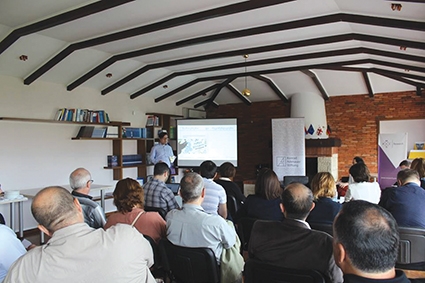PMC Research Presents Climate Change Action Plan Recommendations for Georgia
After signing the Paris Agreement in April 2016, Georgia committed to transforming its economy to low carbon and climate-resilient energy sources. The government has said it will prepare a roadmap for reducing the country’s greenhouse gas emissions- an NDC (Nationally Determined Contribution Document) before the end of 2019. A preliminary NDC document is ready but the final version has yet to be submitted.
A study by think tank organization PMC Research focused on identifying specific climate change problems in Georgia, as well as developing effective solutions.
“The NDC document is our road to clean technologies. Georgia will have the chance to accumulate additional financial resources, receive grants, and apply for low interest rate loans which will lead to a more competitive private sector overall. Georgia has serious perspectives in this regard if it continues to actively work in this direction,” said Kakhaber Mdivani, Senior Specialist for Climate Change Mitigation at the Ministry of Environment and Natural Resources Protection and consultant to PMC Research.
PMC Research’s main recommendations include:
• Setting up a sophisticated data collection system capable of compiling verifiable information on greenhouse gas emissions;
• Creating a system that would effectively coordinate working groups and all private shareholders to develop more environmentally friendly construction projects.
Mdivani gave the example of the Clean Technologies Fund, which has 17 member countries and USD 3.5 bln mobilized for projects set up to lower greenhouse gas emissions and improve waste-free production.
Today, Georgia is among 185 countries having signed the Paris Agreement, which has been ratified by 27 countries thus far, hitting out at 40 percent of the total global greenhouse gas emissions.
PMC Research representatives state that working with donors more effectively and setting strict priorities in accordance with the country’s needs is vital as it will result in a low emission development for Georgia and will see a step forward towards sustainable development.
Before the actual ratification, PMC Research recommends analyzing the available human and technical resources, with realization and investment plans to be set before the Paris Agreement comes into force in 2021.
Institutional arrangements are also regarded as an important part of the work plan, to be implemented with a long-term de-carbonization schedule, as is regular monitoring.
“A clear strategy is an absolute must,” said PMC Research representatives.
The presentation also introduced possible barriers, threats and challenges for implementation of the NDC. Lack of information was identified among the most tangible challenges, with the agricultural sector named as the most problematic in this regard.
“It is essential for all the sectors involved to have the maximum information on each step of the process. Ineffective management and use of human resources are also barriers towards NDC implementation, as is lack of coordination and communication between the local and central governments. Institutional changes need to be made,” PMC Research representatives stated.
Nino Gugunishvili











